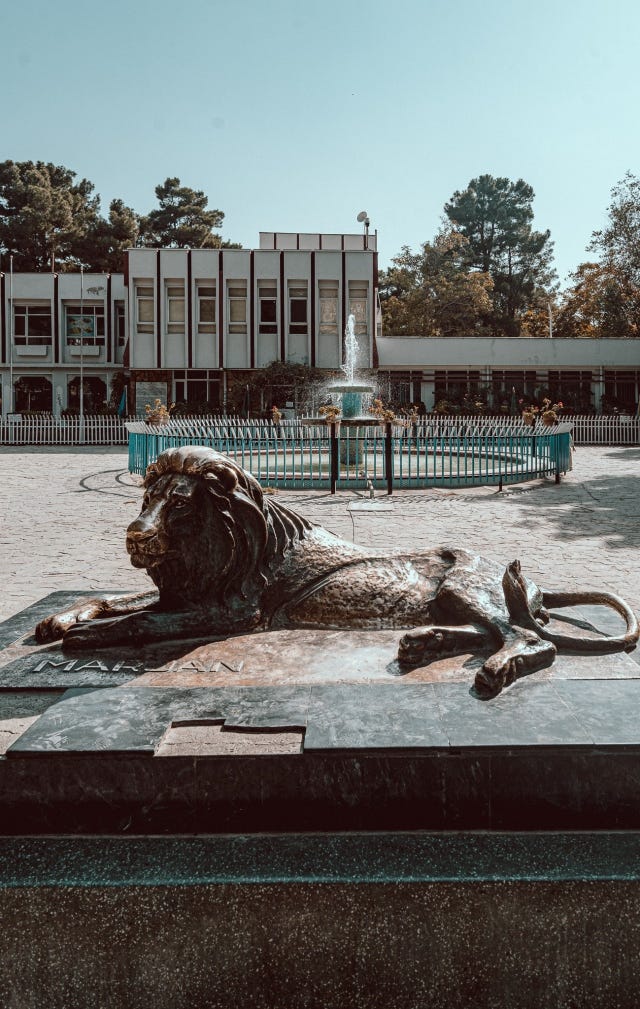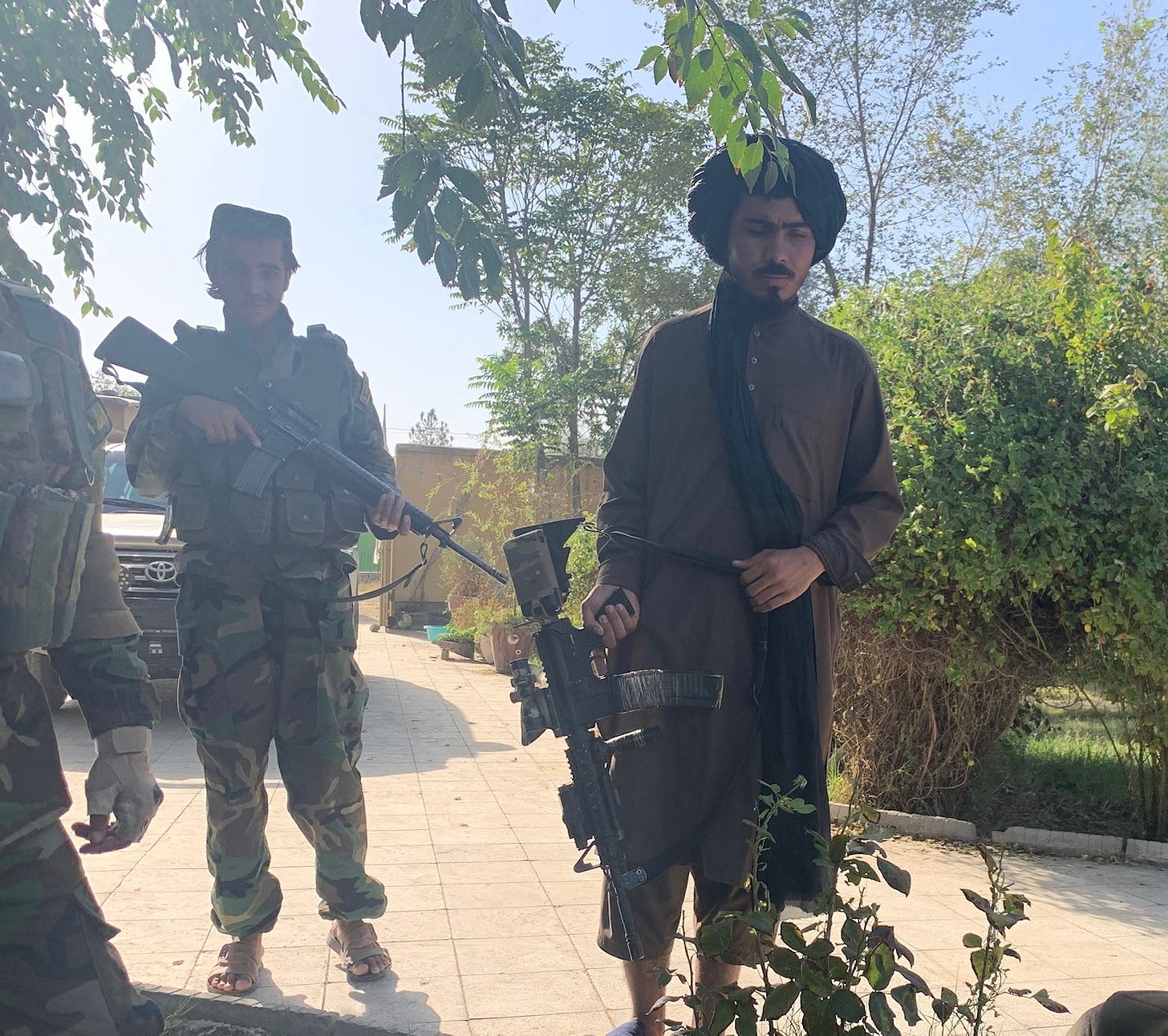“Surely if men are sufficient masters of things to build a howitzer they ought to know better than to destroy each other with it.”
— Stewart Gore-Browne, from Arras, 1916.
ADVOCATES PLEAD TO END ORGAN HARVESTING, DISAPPEARANCES OF MINORITIES IN CHINA
The controversial Beijing Winter Olympics has just ended, and survivors and human rights advocates of the host country’s allegedly oppressive policies are speaking out in a last-ditch effort to draw attention to decades of minority mistreatment.
It is the stuff of nightmares.
Jennifer Zeng was born in Sichuan province in 1966, the year of Mao Zedong’s Cultural Revolution, a massive sociopolitical purge meant to cement communism. A blood transfusion gone wrong days after Zeng gave birth to her first child in 1992 left her with Hepatitis C, a condition that, ironically, would later save her life.
Zeng became aware of the Falun Gong movement in 1997, a Buddhist-like belief system outside the purview of the authoritarian leadership. She secretly meditated with other practitioners for two years. In 1999, however, she was taken into custody for her religious practices.
Before officials drew Zeng’s blood sometime in early 2000, she informed them that she had hepatitis C. As she starved over the coming weeks, many around her — including her cellmate — died from forced feeding.
Zeng realized then that Falun Gong practitioners’ organs were being harvested for profit by a government-run industry. Later, she was released and fled to the United States.
Organ harvesting has long been shrouded in secrecy and impunity; however, formal investigations in recent years have shed light on the notion that marginalized groups forced into labor camps and prisons have been handed such unthinkable atrocities.
A London-based, seven-member China Tribunal concluded in early 2020 that organs including lungs, kidneys, livers, and hearts had been extracted from ethnic and religious minorities and dissidents – sometimes while still alive.
As the chairman of the panel, Sir Geoffrey Nice QC, who led the prosecution of Milosevic in the International Criminal Tribunal for the former Yugoslavia, stated, “it is certain that forced organ harvesting has been practiced in China for a substantial period of time.”
According to the report, forced organ harvesting has been occurring for years, and Falun Gong practitioners comprise one – and probably the main – source of organ supply in China, enabling the industry to generate over $1 billion in revenue every year.
Additionally, a group of United Nations independent experts provided further evidence of organ harvesting under the Chinese Communist Party (CCP), expressing concern that organs were being harvested from Falun Gong practitioners, Uyghurs, Tibetans, Muslims, and Christians.
“(We have) credible information that detainees from ethnic, linguistic or religious minorities may be forcibly subjected to blood tests and organ examinations such as ultrasound and x-rays, without their informed consent; while other prisoners are not required to undergo such examinations,” the experts stated. “The results of the examinations are reportedly registered in a database of living organ sources that facilitates organ allocation.”
The UN considers this a “form of trafficking with a medical nature,” which comprises an array of medical professionals and specialists, beginning with potential victims forcibly subjected to blood tests and examinations to determine if they are applicable candidates.
Yet, the Chinese government vehemently denies the accusations. The government contends that the testimony was fabricated by actors committed to “slander and rumor-mongering.” Moreover, the CCP implied that UN experts failed to carry out their duties fair and objectively. However, the experts were not allowed adequate access to the sites presumed to be involved in the harvesting process.
While at the same time, China has been emphasizing that it has the most extensive voluntary organ donation system in Asia.
With all eyes on Beijing as the Olympics unfolded, those who lost their loved ones took the opportunity to spread awareness of a different kind. With little left to lose, many are seeking to draw attention to friends and families who have disappeared over the years or had their freedom of movement severed due to their religious practices.
For one, Mei has been pining for her husband in New York for more than twenty years.
“I waited for him at Newark International Airport with flowers. Jiang Feng was to arrive on a Continental Airlines flight from Shanghai, but he was still nowhere to be seen after the last passengers left. My calls to China confirmed my greatest fears: He checked in but never boarded the flight. Chinese secret police abducted him,” she recalled.
That was 2010, and Mei is still waiting.
“I was a musician, and he worked as a piano tuner. But before our first anniversary, we were kidnapped from our workplaces and jailed. That was July 20, 1999, the first round of arrests of Falun Gong practitioners like us,” she stated. “My family members are all in China; they were detained and sentenced before, but have now been released. However, their passports were taken away, and they didn’t have freedom. They can’t escape China. My husband and I can’t be together. He currently lives in China, but his actions are being monitored; he is prevented from going abroad to meet his wife.”
CLICK TO READ MORE ABOUT THE PLIGHT OF MINORITIES IN CHINA
THE LEGEND OF AFGHANISTAN’S MARJAN THE LION
Almost 27 years later, it is still the stuff of legend.
The story of Kabul’s late lion Marjan captures the enduring spirit of a country defined by decades of hardship, heroism, and senseless bloodletting.
“He was a friend to everyone,” Dr. Abdul Rahman Maiwand, the spritely zoo’s head veterinarian, recalls of the internationally renowned attraction. “He saw all the wars of this country.”
German Cologne Zoo donated Marjan to Kabul Zoo in the late 1970s during a time of relative peace and prosperity. Marjan, meaning coral in Persian, stood as a witness to the Soviet Invasion of Afghanistan in the decade that followed and to its endless wars.
Marjan was caught in the crossfire of conflict during the Civil War of the 1990s, following the Soviet defeat.
In 1995, an Afghan soldier, in a bid to impress his comrades, crept into a lion’s den. The fighter patted Chucha first, who responded demurely. But as he approached Marjan, the male instantly struck out and killed the man in a matter of minutes.
Despite this, the predator’s instinct was not sufficient to justify the family’s confusion and grief.
On the following day, the killed fighter’s brother lobbed a grenade into the den to exact revenge, causing Marjan to become blind, deaf, and permanently disabled. International veterinary aid groups had to remove his eyes after they tried desperately to treat the injured animal with a multitude of surgeries.
Despite Marjan’s survival, the perpetrator met his own grisly end a week later. After word spread of the revenge strike, the man was viciously assaulted by an angry mob a week later and died as a result.
In addition to losing his ability to see and hear, Marjan also lost his teeth, and therefore his ability to chew, making him dependent on external aids forever.
It nonetheless became a local star, a symbol of survival.
“It was painful sometimes to see,” recalled one former Mujahadeen fighter, Ahmad, now 65. “A ramp was built for him, but still, he would fall. This beautiful, big animal falling, no one quite knew how to respond. Yet Marjan got back up.”
Even so, Kabul Zoo found itself inadvertently on the frontlines of the conflict – and was shelled multiple times, its medical supply room blown to pieces. Locals tell tales of animals being freed and eating each other, with some ending up in the growling stomachs of impoverished fighters themselves. Other items were smuggled out of Afghanistan for top dollars, such as the once plentiful exotic animals.
Marjan and his fellow attractions were again embroiled in a battle of a different kind when the Taliban came to power in 1996. This new regime, which was the most pariah in history, was ravished by recession. Therefore, Kabul Zoo had deteriorated into less than fifteen species with dead grass, withered trees, starving animals and empty cages. The Afghan Royal Family built the Kabul Zoo in the 1960s, and was once considered the most lavish and abundant in all of Asia with more than 450 species.
Even so, Marjan was the one who captured many hearts.
CLICK TO READ MORE ABOUT THE FATE OF MARJAN THE AFGHAN LION
CHILD SOLDIERS AND SUICIDE BOMBING SCHOOLS STILL DEFINE THE TALIBAN RULE
The Taliban, officially termed the Islamic Emirate of Afghanistan, went from an insurgency to a self-declared state in a matter of moments when they entered the empty Presidential Palace six months ago.
The leadership immediately professed to have changed from their brutal rule of the 1990s in a desperate attempt to obtain recognition and foreign aid; however, it is clear that some unsettling elements are unlikely to change.
On the fringes of Kabul, tucked away inside a nondescript kindergarten, sits the shadowy Badri Special Forces.
"This Command has two parts," one top Taliban fighter named Hafiz Badry tells me calmly. "There are those who train to be special forces fighters and those who train to be special suicide bombers."
Soon after the takeover, the building, adorned with faded pink walls, a play area for children, and soiled stuffed toys, became a suicide school. According to Hafiz, most people want to become a "martyr," but the selection process is based on pre-requisites, such as completing a "special action" beforehand.
His comrade Qari Omadi Abdullah says recruits come "begging and crying" to be chosen for training to wear the deadly vest. It is said that the training process lasts around two months and concentrates on intense religious doctrine to prepare them for the afterlife and ensure they can accomplish the life-severing mission. Further physical training is conducted to understand explosives and ensure that the endeavor is carried out at the right time, undetected.
Despite their transformation from an insurgency into a government charged with caring for a country of 38 million, suicide bombing remains a key and pivotal strategy for the Taliban. After assuming power on August 15, the Taliban posted a picture of one of their Istish-haadi squads, displaying their vests, bombs, and improvised explosive devices on social media.
After all, the Taliban no longer needs to keep its suicide endeavors – and training schools – hidden deep in the mountains or in pockets across the Pakistan side of the border.
During the war, they claimed suicide attacks only targeted military targets, but the facts and figures prove otherwise. The crossfire has caught countless civilians over the years. Over the course of the war, scores of Afghans and some Americans were killed by suicide attacks everywhere, from outside NATO headquarters in Kabul to police stations and checkpoints to the Ministry of Defense and Shia neighborhoods across the country.
In terms of the Taliban, the first suicide bombing was carried out in 2003 after Usama bin Laden mandated "martyrdom operations" in a video to his legion of followers, opening the floodgates to such attacks.
Throughout the years, suicide missions intensified, and the group soon clocked up the most suicide bombings of any organization worldwide.
Almost all of the Taliban's armed units have a wing for those who are ready and capable of doing the duty at any moment should they be needed. In particular, the elusive Haqqani Network has been deemed the most successful, carrying out hundreds of such attacks throughout the U.S. occupation. The U.S.-designated terrorist group now holds several key positions within the government, including the powerful position of Minister of Interior.
While the Taliban once sought to use the tactic primarily against members of now-defunct Afghan National Forces, they now seek to use it primarily against the rival ISIS-K, colloquially known as the Daesh.
Of the dozens and dozens of Taliban members I have encountered – from the highest echelons to the lowest foot fighter – there is not a single one that dismisses such "martyrdom." The passion for the maneuver will likely remain in full force as a warning to anyone who dares contemplate encroaching on their terrain. As opposed to the rhetoric I often hear from ISIS fighters speaking of 72 virgins and flowing rivers of wine, Taliban soldiers speak of a less fanciful, yet no less aspirational quest for paradise.
In many ways, the Emirate has sent the message that its dedication to the cause is what makes it strong, and that international illegal practice is a response to the West's well-grounded and expensive military capabilities and technology.
"The greatest thing about the Supreme Leader is that he gave his son," a Taliban guard stationed in Kandahar tells me of Afghanistan's Supreme Leader and his own former madrassa teacher, Haibatullah Akhundzada. "His son performed a suicide mission years ago in Helmand."
Moreover, it remains to be seen if the Taliban will continue to use children as bombers, but all arrows indicate that minors are still a military mainstay.
CLICK TO READ MORE ABOUT SUICIDE BOMBERS AND CHILD SOLDIERS IN AFGHANISTAN
For those interested in learning more about the aftermath of war, please pick up a copy of my latest book “Only Cry for the Living: Memos from Inside the ISIS Battlefield.”
Also if you want to support small business:
And also now available Down Under!
Thanks again for your support. Follow me on Instagram and Twitter for more updates


















Share this post